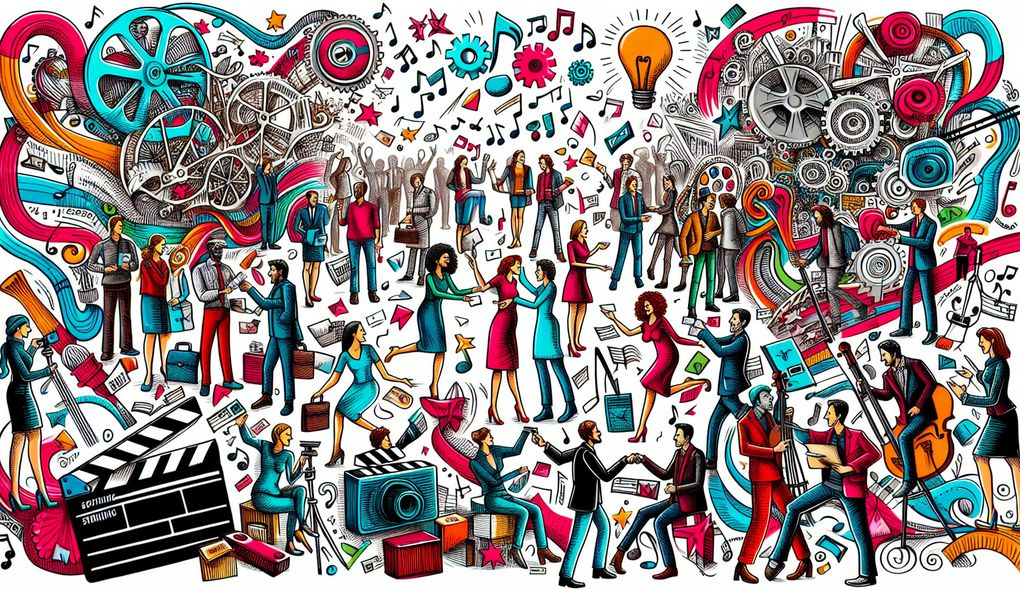Darsazma News Hub
Your go-to source for the latest news and insightful information.
When Did Reality TV Become Our Reality?
Explore the rise of reality TV and its impact on our lives. Discover when entertainment blurred with reality in this eye-opening blog post!
The Evolution of Reality TV: From Entertainment to Everyday Life
The evolution of reality TV has been nothing short of transformative, transitioning from a niche form of entertainment in the 1990s to a dominating force in mainstream media. Shows like The Real World and Survivor pioneered this genre, offering viewers a glimpse into the unscripted lives of others while blurring the lines between reality and fiction. As audiences became increasingly captivated by the authenticity (or perceived authenticity) of these programs, networks began to flood the airwaves with diverse formats, including talent competitions, dating shows, and even lifestyle documentaries. This exponential growth has allowed reality TV to evolve into a cross-genre phenomenon, effectively creating a new cultural language where viewers feel connected to the lives of strangers.
However, the impact of reality TV extends far beyond entertainment; it has seeped into the fabric of everyday life. With the rise of social media platforms, the stars of these shows have leveraged their fame to become influencers, shaping trends and consumer behaviors. Furthermore, many individuals now aspire to create their own content based on their life experiences, mimicking the reality TV format in their daily lives. This phenomenon has led to a cultural shift where countless people seek validation through online platforms, often curating their own 'reality' for public consumption. As such, reality TV has not only influenced television programming but has also redefined personal narratives, emphasizing authenticity amidst a backdrop of performance.

Is Reality TV Reflecting Our True Selves or Creating a False Narrative?
The debate surrounding reality TV often centers on the question of whether it truly reflects our true selves or simply crafts a false narrative designed for entertainment. On one hand, proponents argue that these shows capture genuine moments of human behavior, showcasing our vulnerabilities, relationships, and conflicts. Reality TV serves as a mirror, reflecting societal norms and personal struggles that viewers can relate to. Producers often select participants whose personalities culminate in engaging drama, suggesting that while some elements may be exaggerated, they still resonate with our authentic selves.
Conversely, critics assert that reality television distorts reality, presenting a skewed representation of life and relationships. The editing process can manipulate events to create a storyline that may never have occurred as depicted. In this light, reality TV can create a false narrative that not only misrepresents participants but also influences viewers' perceptions of social norms and expected behaviors. As audiences consume these curated portrayals, they may inadvertently adopt unrealistic expectations for their own lives, leading to a disconnect between their reality and the illusions presented on screen.
How Reality TV Changed Our Social Norms and Expectations
Reality TV has significantly changed our social norms and expectations by bringing to the forefront the idea that everyday life can be entertaining and dramatic. Programs like The Real World and Keeping Up with the Kardashians have blurred the lines between reality and performance, allowing viewers to witness the personal struggles and triumphs of others in a way that was previously reserved for scripted television. This has led to a new societal benchmark where authenticity is valued, but often it is authenticity that is crafted for the camera. Viewers are left to grapple with the implications of what they see, leading to a cultural shift in the understanding of personal relationships and public personas.
Moreover, the influence of reality TV extends beyond mere entertainment; it has redefined success and beauty standards. Contestants from shows such as America's Next Top Model and Survivor have become icons, promoting an image of achievement that is often tied to their televised experiences rather than traditional milestones. This phenomenon has spurred societal pressure to conform to unrealistic expectations regarding physical appearance and lifestyle choices. Consequently, many individuals now measure their worth against these curated realities, leading to increased instances of anxiety and discontentment. The question remains: how do we navigate these expectations while maintaining a sense of genuine self-worth?